Should Dogs Lick Their Wounds? Will It Heal Them?
17.03.2022.
Dogs lick wounds instinctively. When something hurts them, they lick it. It’s just a part of who they are. The belief that dogs must lick wounds to heal them is so widespread that many people, including ancient societies, believed that dog saliva could also heal human wounds. This belief has some basis. However, it has grown to mythic proportions over time. So, should you allow your dog to lick its wounds? Even more important, will licking heal their wounds?
What Makes Dogs Lick Their Wounds?
One of the most common reasons dogs lick their wounds is to relieve pain and discomfort. Licking the wound site overstimulates the brain, which can temporarily numb the pain. This is analogous to people rubbing or holding their wounds. Dogs use their tongues to soothe themselves because they don't have hands to rub or hold their wounds.
Dogs also lick their wounds to clean away debris and bacteria. Dog saliva has been shown in studies to have some bacteria-killing properties. The effect, however, is minor, and it is only effective against Escherichia coli and Streptococcus canis.
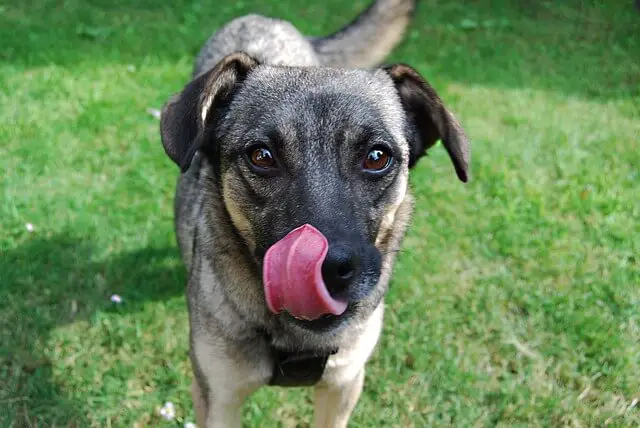
While licking may help reduce these two types of bacteria, many other bacteria can begin to grow in the wound.
RELATED: 7 Ways to Clean and Care for Your Dog’s Paws
So, Is Licking Wounds Healthy?
While licking may provide some protection against certain bacteria, there are some serious drawbacks to allowing your dog to lick its wounds. Excessive licking can cause irritation, which can lead to hot spots, infections, and self-mutilation.
By reopening wounds, licking and chewing can also slow healing. Dogs are especially dangerous when it comes to licking surgery sites. Licking can cause sutures to dissolve and reopen the wound, necessitating a return visit to the veterinarian. Closure of reopened surgical wounds is frequently more complex than the closure of clean wounds. That is why surgeons give Elizabethan collars to their canine patients to wear while sutures are in place or until the wound is completely healed (usually in 10-14 days).
Instead of allowing your dog to lick wounds, keep wound care products in your canine first aid kit. Any deep penetrating wound should be examined by a veterinarian as soon as possible. Smaller abrasions and lacerations should be gently washed, thoroughly rinsed, and patted dry. Talk to your vet about over-the-counter antiseptic sprays or washes that can be used to treat minor scrapes and cuts at home or as follow-up care for larger wounds.
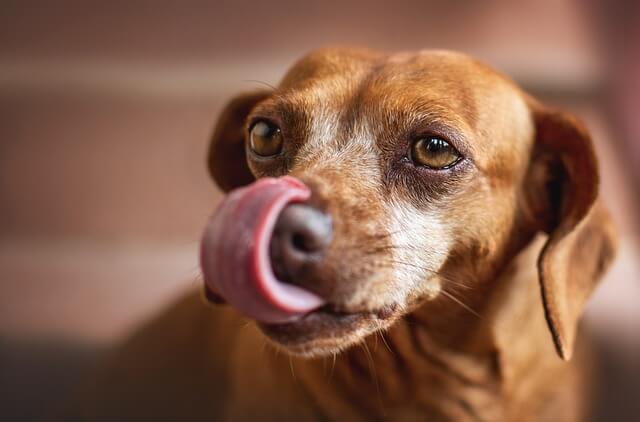
Active dogs who compete or participate in sports may be more prone to injury than their more sedentary counterparts. Antibacterial products and appropriate bandages are especially important for these dogs, so bring your first-aid kit with you when you travel.
What Happens If My Dog Continues to Lick Its Wounds?
Although licking the wound may provide temporary relief, most dogs lick their wounds excessively. This may introduce more bacteria into the wound, resulting in an infection.
Licking wounds can cause infections as well as irritation and damage to the surrounding tissues and wound area. This, in turn, can cause delayed healing and, in some cases, increase the size of the wound.
RELATED: Can Dogs Have Identical Twins? Here's What Science Says
In some cases, dogs lick at their wounds so much that they reopen healing wounds. Dogs can lick themselves so aggressively after surgery that they pull out the sutures and open the incision site.
How to Stop Dogs from Licking Wounds
Dogs can injure themselves in various ways by licking their wounds, so it's critical to understand how to keep them from licking them. While the infamous plastic "cone of shame" is the standard option, you may not be aware of the following alternatives:
Dog Clothes
T-shirts or other pet clothes can help cover wounds on the chest or belly and keep your dog from licking at them.
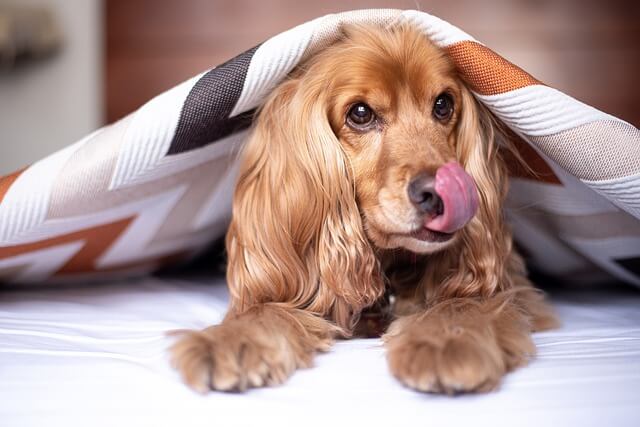
Recovery Suits
These are specialized garments designed to cover a dog's wounds. Various suits have been created to cover almost any injury that a dog may have.
Elizabethan Collar
Elizabethan collars are also known as e-collars or "cones of shame." While it is common practice to use a hard plastic cone to prevent a dog from licking, there are now several types of soft cones available that your dog may find more comfortable.
The most important aspect is to find the correct size cone for your pet. The cone's end should extend at least 2 inches beyond your dog's muzzle; otherwise, they will be able to lick around the cone's end.
RELATED: Purebred vs. Mixed-Breed: Which Dogs Are Healthier?
Inflatable Collar
Inflatable collars can be a lot more comfortable for your dog and a lot more convenient for you. When dogs wear these, they knock fewer things over, collide with fewer objects at home, and do not injure people with a stiff plastic cone when they inevitably walk into them. The disadvantage of these is that they may be ineffective if the wound is on the paw or with extremely flexible or determined dogs.
Booties/Socks
Dog booties or socks can be a great way to keep your dog from licking wounds on the feet.
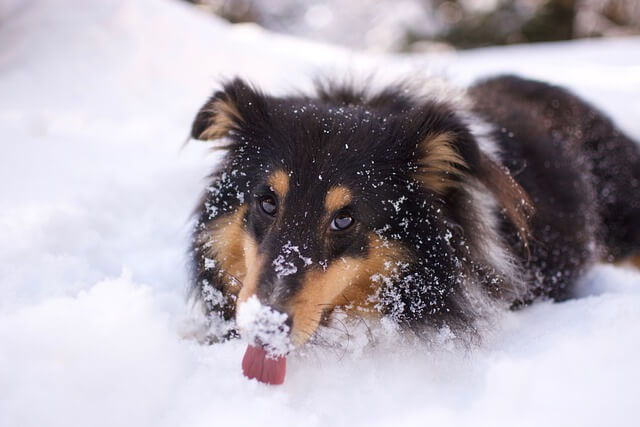
Bandages
Your veterinarian may apply a wound bandage to the area depending on the type and severity of the wound. This not only protects the wound but also keeps your pet from licking it. Do not apply your own bandage to the wound without consulting your veterinarian.
RELATED: 6 Tips to Stop Your Dog From Digging Your Yard
How Can You Tell If Your Dog's Licking Wound Is Infected?
If you notice any of the following signs of infection, contact your veterinarian immediately:
- Redness
- Inflammation
- Discharge that is thick or colored
- Pus
- The wound has reopened
- A wound that takes a long time to heal or does not heal at all
Abandon Wound Licking
Dog saliva may have some healing properties, and before modern medicine, licking wounds was your dog's best defense against infection. However, in today's world, we have more options. Keep a first-aid kit with a wound care product on hand to avoid putting your dog in danger. Discourage your dog from licking whenever possible. Consult your veterinarian for more information on wound care and wound care products.
World Dog Finder team

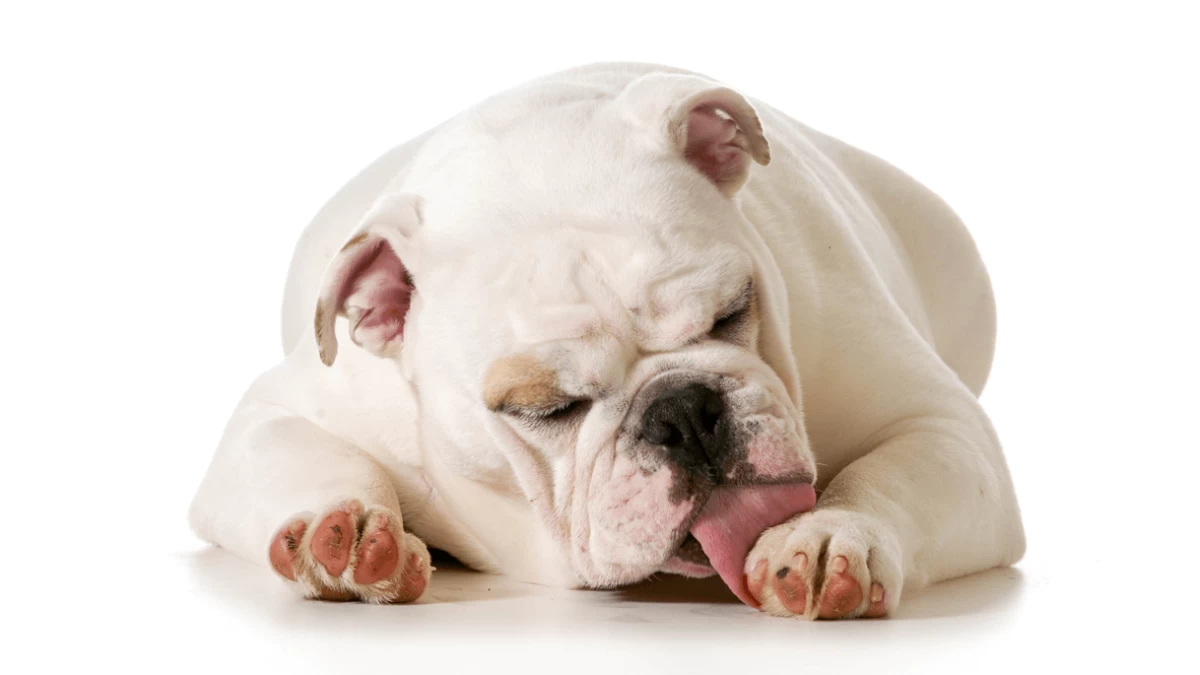





Share